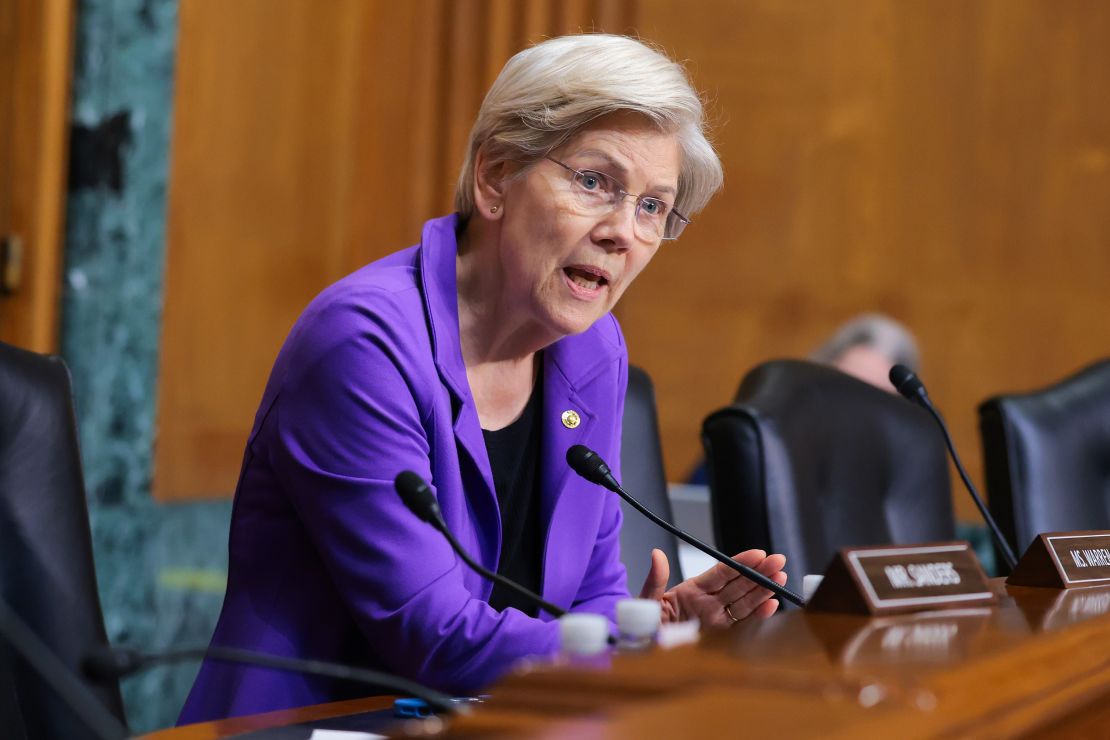CNN
—
Commerce Secretary Howard Lutnick said the Trump administration’s decision on Friday to exempt electronic devices — like smartphones, iPhones and laptops — from tariffs was only a temporary reprieve but those products will face separate levies, adding more confusion to an already chaotic rollout of tariffs on Chinese goods.
“(Electronics are) exempt from the reciprocal tariffs, but they’re included in the semiconductor tariffs, which are coming in probably a month or two,” Lutnick told ABC News’ “This Week” anchor Jonathan Karl on Sunday.
Tariffs targeting specific business sectors will be imposed in the next couple of months on certain products key to national security, which will be “not available for negotiation,” Lutnick said.
On Sunday afternoon, President Donald Trump sought to clarify the status of US tariffs on high-tech products from China.
“NOBODY is getting ‘off the hook’ for the unfair Trade Balances, and Non Monetary Tariff Barriers, that other Countries have used against us, especially not China which, by far, treats us the worst!” Trump posted on Truth Social.
“There was no Tariff ‘exception’ announced on Friday. These products are subject to the existing 20% Fentanyl Tariffs, and they are just moving to a different Tariff ‘bucket.’ The Fake News knows this, but refuses to report it,” he continued.
A notice from the US Customs and Border Protection on Friday exempted electronic products from the 145% tariffs on Chinese goods.
Appearing on CNN’s “State of the Union,” Massachusetts Democratic Senator Elizabeth Warren described the confusion about shifting tariff rates and how smartphones and computers were spared from reciprocal tariffs as “chaos and corruption.”
“Investors will not invest in the United States when Donald Trump is playing ‘red light, green light’ with tariffs and saying, ‘Oh, and for my special donors, you get a special exemption,’” Warren said.
Analysts at Wedbush Securities on Saturday had called the tariff exemptions on electronics “the best news possible for tech investors” and that “firms like Apple, Nvidia, Microsoft and the broader tech industry can breathe a huge sigh of relief this weekend into Monday.”
Trump officials defends tariffs
Tariff whiplash has sent the stock market tumbling, consumer sentiment plummeting to the second-lowest on record since 1952 and spurred fears of a recession. But the Trump administration has held steady that tariffs will strengthen the US economy by boosting manufacturing and protecting jobs.
Trump officials were mixed on how to describe the late Friday announcement, but emphasized there would be a study on the national security effects of semiconductor imports — known as a Section 232 study, after which Trump may impose another slate of electronic-specific tariffs.
White House senior trade adviser Peter Navarro, US Trade Representative Jamieson Greer and National Economic Council Director Kevin Hassett all discussed Trump’s tariff policies on Sunday news programs. In an interview on NBC News’ “Meet the Press with Kristen Welker,” Navarro did not say whether there have been new talks with China but noted “we have opened up our invitation to them” and Trump has a “good relationship” with China President Xi Jinping.
Tariffs on imports from China total 145% and the Chinese government retaliated by placing 125% tariffs on all US imports. Chinese leader Xi has said his nation is “not afraid,” but officials indicated they would not increase tariffs on the United States higher than 125%.
Appearing on “State of the Union, Hassett said 130 countries are negotiating tariffs with the United States following Trump’s 90-day pause on reciprocal tariffs, excluding those placed on China.
“There’s a process about China, and that’s very, very nascent, if at all,” he said. “The process for everybody else is orderly, it’s clear.”
When asked on CBS News’ “Face the Nation with Margaret Brennan” whether the United States wants China to sell its US assets, some of which are tied to US treasuries, Greer said “that’s not part of this plan” and that “the only reason we’re really in this position right now is because China chose to retaliate.”
Meanwhile, economist Oren Cass, founder of the right-leaning think tank American Compass, maintained on CNN’s “Fareed Zakaria GPS” that he supports the 10% across-the-board tariff and the much higher tariffs on China but criticized the uncertainty of the way the tariffs have been put in place.

Confusion and doubt about tariffs
“Nobody can figure out what the rules will be five days from now, much less five years from now,” Warren said on Sunday.
Former Treasury Secretary Larry Summers said on “Fareed Zakaria GPS” that the tariff policy is “the worst self-inflicted wound through economic policy” since World War II.
“It’s wrong on competitiveness, wrong on unemployment, wrong on inflation … The best thing we can hope for is that people start to see sense and reverse these errors,” said Summers.
Summers added that China President Xi has an “artful deal,” as Trump’s trade policies have China seeing “scope for new influence, scope for new markets, scope to displace the United States of a kind that they could not have imagined.”
Billionaire investor Ray Dalio, appearing on “Meet the Press,” called Trump’s trade policies “very disruptive” so far. But it “could be part of a process,” he added. “It depends where we are at the end of the 90 days.”
When Dalio was asked about the likelihood of an impending recession, he said America is “very close to a recession.”
JPMorgan says the odds of a recession are now 60%, up from 40%. Goldman Sachs’ prediction now sits at 45%.
“If you take tariffs, if you take debt, if you take the rising power challenging existing power — if you take those factors, those changes in the systems are very, very disruptive,” Dalio said. “How that’s handled could produce something that is much worse than a recession or it could be handled well.”
CNN’s Kevin Liptak and Elisabeth Buchwald contributed to this report.
This story has been updated with additional content.


